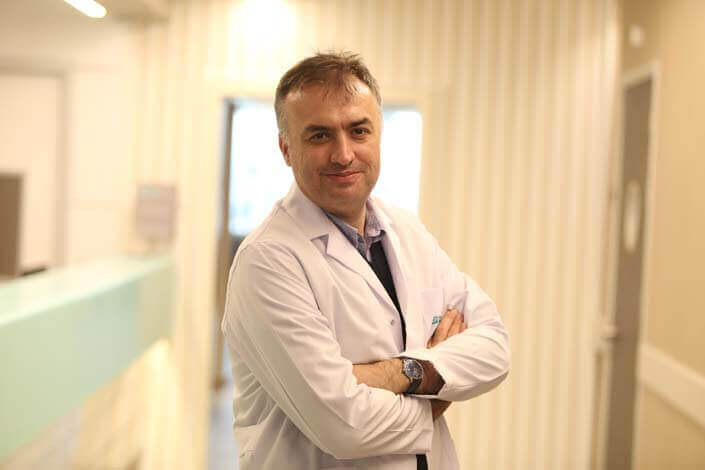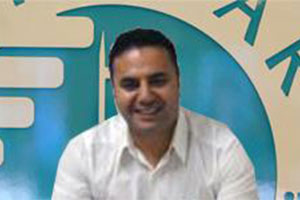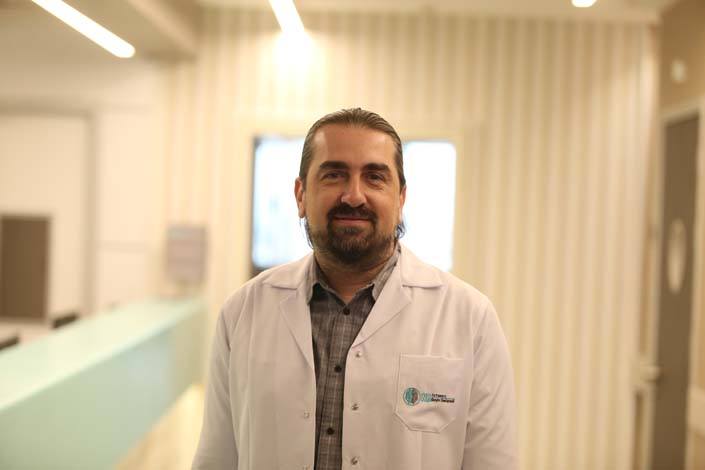Migraine
What is good for a headache?
Headaches, which can be caused by stress, can range from mild to severe, and they can significantly disrupt a person's daily life. Headaches can occasionally have psychological origins, but they can also be symptoms of neurological disorders. However, it should be noted that headaches are considered a distinct condition with various types.
Headaches can be alleviated and relieved through natural and simple methods that are commonly referred to as home remedies. However, if the pain intensifies significantly, it is crucial to seek advice from a healthcare professional. Here are some practical methods that can help relieve headaches:

Water consumption: Drinking an abundant amount of water assists in alleviating and relieving headaches. Dehydration can be a cause of headaches, so it is advisable to consume water before turning to painkillers when experiencing pain. It is important to remember that consuming an average of two liters of water daily has a protective effect on overall health. Taking a shower also helps relax the body and has the potential to relieve and alleviate headaches.
Cold compress: Applying a cold compress can be helpful in relieving pain. Placing a wet cloth or an ice pack on the head can help alleviate headaches.
Taking in oxygen: Getting fresh air and properly ventilating the environment is beneficial for oxygen intake and can help alleviate headaches. Going outdoors when experiencing a headache is highly beneficial. If possible, taking a walk is also recommended.
Avoiding alcohol and smoking: Smoking can initially cause headaches, so refraining from smoking will be beneficial in alleviating headaches. Alcohol, particularly the following day, can lead to significant headaches. By abstaining from alcohol, one can avoid experiencing headaches. The notion that consuming alcohol during a headache can relieve the pain is not based on reality.
Caffeine consumption: Consuming a cup of Turkish coffee can alleviate the pain. However, moderation should be exercised with caffeine intake, as with everything else. Strong odors can trigger headaches, so it is advised to avoid perfume products. Furthermore, the scents of mint and lemon can help alleviate pain and provide a refreshing effect. They can also be added to the consumed water.
Additionally, it is known that acupuncture has analgesic properties. Applying pressure and massage to specific points on the body can reduce headaches, particularly the points located between the eyebrows and in the middle of the two eyes. Massaging the neck, temples, and forehead can help alleviate and relieve both mild and severe headaches. If the headache is a migraine, it is advised for the individual to sleep in a dark and quiet room. This is because during a migraine episode, individuals become highly sensitive, and a dark, quiet environment has a relieving effect on migraines.
What are the different types of headaches?
If headaches do not occur as a result of an underlying health issue but rather directly manifest as a pain condition, they are referred to as primary headaches. The commonly observed types include migraines, tension-type headaches, and cluster headaches. There are many different types of headaches.
Tension-type headache: It is commonly observed in the afternoon and initially responds to painkillers, but later it may become unresponsive to them. Prolonged use of painkillers in patients can lead to gastrointestinal and renal diseases. Therefore, for this type of headache, it is recommended to be treated with specific therapeutic approaches rather than relying solely on painkillers. These treatment approaches may involve medication to reduce tension and anxiety, relaxation exercises, and psychotherapy.
Cluster headache: It typically presents as a severe pain behind the eye. The pain often occurs in clusters or attacks that can last for days, indicating a tendency to cluster at specific times. Redness and tearing of the eye can also be observed accompanying the pain.
Migraine: Migraine is a common condition in the population. It typically causes unilateral throbbing pain. Nausea and vomiting may accompany the pain. Migraine pain can be very severe, leading to significant decreases in a person's school and work performance. Special pain relievers called triptans can be used in the treatment of migraines. However, if a person experiences frequent attacks and encounters difficulties in their work, school, and family life as a result, they may benefit from specific migraine medications. These medications include beta-blockers, which are hypertension drugs, and anti-epileptic drugs known as epilepsy medications.
Thunderclap Headache: It is a type of headache that occurs suddenly, abruptly, and with severe intensity. It manifests itself stealthily without any warning signs and lasts for approximately 5 minutes. It is particularly related to the blood vessels in the brain and occurs as a result of issues that require immediate treatment.
Hypertension Headache: It is a severe headache that accompanies high blood pressure and should be kept under control. Headaches associated with high blood pressure are generally felt in the back of the head. It is related to an elevation in blood pressure.
What are the causes of headaches?
The causes of headaches can vary depending on their types. For instance, in primary headaches, which are more common among individuals with genetic predisposition, environmental factors trigger brain activation. This activation leads to the widening of brain blood vessels and the release of certain chemicals, which stimulate nerves and result in the sensation of pain.
Secondary type headaches can have various underlying causes. For example, inflammation, vascular damage, tumors, and high blood pressure are just a few of the reasons. Therefore, it is crucial to determine the underlying cause of these types of headaches. Additionally, headaches during menstruation can be observed in women. Furthermore, stress also plays a significant role in triggering headaches.
Treatment of Headaches
Headache is a neurological condition that requires a treatment plan from a neurology specialist. There are many medication treatments for headaches that have been proven to be effective. Additionally, recent research has revealed the effectiveness of electrical stimulation with the proper currents as a treatment for migraines. Studies have shown that teaching individuals methods to control their own body can lead to a significant improvement in headache treatment.
Hence, scientifically validated and emerging treatment methods are being employed. Alongside conventional therapies, recent and up-to-date approaches such as brain stimulation and biofeedback are being utilized. The involvement of neurologists, psychiatrists, and psychologists is crucial in the treatment process. A multidisciplinary treatment approach should be applied to the patient since these types of headaches can be caused by various psychological disorders and stress, which can also give rise to headache-related conditions.
Regular exercise and a balanced diet are of great importance. They are often recommended in the treatment of different types of headaches. In order to free themselves from headaches and the associated headache types, individuals need to adjust their lives accordingly.
In the treatment, input is sought from various departments such as neurosurgery, dietetics, and physiotherapy, depending on the type of your headache. For instance, if your headache is caused by nerve compression, the neurosurgery team can alleviate the pain through a simple intervention on the nerve. Some of our patients' headaches are specifically triggered by the food and beverages they consume. Particularly for migraine patients, their pain can be exacerbated by alcohol, chocolate, processed foods, and cheese. Identifying and eliminating such dietary factors can significantly reduce the intensity of the pain. Moreover, in cases of headaches with musculoskeletal origins, such as those resulting from "cervical spondylosis," physiotherapy can be applied.
What Helps with Headaches?
Headaches can be relieved and treated at home with natural and simple methods. However, if the pain becomes severe, it is important to consult a healthcare professional. Here are some practical methods that can help alleviate and alleviate headaches:
Water consumption: Consuming an ample amount of water helps alleviate and relieve pain. A dehydrated body can contribute to headaches. Therefore, when experiencing pain, it is advisable to consume water before resorting to pain relievers. It should be noted that daily consumption of approximately two liters of water has a beneficial effect on overall health. Taking a shower also helps relax the body, and a shower can have a relieving and alleviating effect on headaches.
Cold compress: Applying a cold compress can be beneficial in relieving pain. When a wet cloth or ice pack is placed on the head, it can help alleviate headaches.
Taking in oxygen: Getting fresh air and properly ventilating the environment is beneficial for obtaining oxygen and can help alleviate headaches. It is very helpful to go outside into the open air when experiencing a headache. If possible, taking a walk is also recommended.
Avoiding alcohol and smoking: Smoking can initially cause headaches, so refraining from smoking will be beneficial for relieving headaches. Alcohol, especially when consumed excessively, can cause headaches, particularly the next day. By abstaining from alcohol, one can prevent the occurrence of headaches. The notion that consuming alcohol during a headache can alleviate the pain is not based on reality.
Caffeine consumption: Drinking a cup of Turkish coffee can help alleviate headaches. However, as with everything, excessive consumption of caffeine should be avoided. Strong odors can trigger headaches, so it is recommended to stay away from perfume products. In addition, the scent of mint and lemon can help relieve pain and provide a refreshing sensation. They can also be added to the water consumed.
Additionally, acupuncture is known to be effective as a pain reliever. Applying pressure and massage to specific points on the body can help reduce headache pain. These points are located between the eyebrows and in the middle of the two eyes. Massaging the neck, temples, and forehead can help alleviate and relieve mild or severe headaches. If the headache is of the migraine type, it is recommended for the individual to sleep in a dark and quiet room. During a migraine episode, individuals become highly sensitive, and a dark, quiet environment has a soothing effect on migraines.
Is it harmful to use painkillers for headaches?
Painkillers are generally considered harmless medications. However, they can potentially cause irreversible damage to organs such as the kidneys and stomach. Medications are not the direct solution for treating headaches. Therefore, it is important to avoid long-term and regular use of painkillers. If you find yourself needing to take painkillers for your headache more than once a week, it is necessary to consult a neurology doctor.
What should I do if my child has a headache?
Headaches in children should be carefully and promptly examined to identify any underlying serious conditions. Despite being less well-known, migraines are a common condition in children and, if left untreated, can lead to significant school and behavioral problems. Headaches in children should be approached with the same seriousness as in adults and should be treated accordingly. A comprehensive evaluation of the child's medical, neurological, and mental health is necessary for effective treatment.
Should I be worried if I have a headache?
If you have any of the following characteristics in your headache, it is important to immediately visit a neurology doctor: If you experience a new type of headache that you have never had before, If you are experiencing a headache of an intensity you have never experienced before, If the headache wakes you up from sleep, accompanied by nausea and vomiting. In such cases, a brain scan may be requested from you. Although rare, headaches can be a sign of brain tumors or bleeding. Therefore, a prompt brain imaging (MRI or CT scan) should be performed to reach a diagnosis.
Is it true that there is no definitive cure for migraines and migraine sufferers experience pain throughout their lives?
The society complains of migraine and other severe headaches. Migraine is a condition that can be experienced in youth, middle age, and old age. However, some individuals may experience more frequent headaches during certain periods of their lives. For example, migraine attacks are more common in the 20s and 50s. Therefore, migraine can be considered a lifelong condition, but the severity may vary with age. There is no treatment that can completely eliminate migraines in a single session. However, there are many preventive treatments available for migraines, and when these treatments are regularly applied, individuals can achieve a relatively pain-free life. Therefore, the most important fact that migraine patients need to know is that living with pain is not inevitable.




